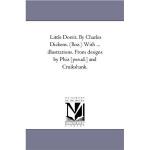|
This section contains 6,043 words (approx. 21 pages at 300 words per page) |

|
SOURCE: Rainsford, Dominic. “Flatness and Ethical Responsibility in Little Dorrit.” Victorian Newsletter, no. 88 (fall 1995): 11-17.
In the following essay, Rainsford studies characters in Little Dorrit who were adversely affected by childhood trauma well into middle age.
Dickens's early novels typically end with the principal characters finding a home, a physical refuge from their problems. In later Dickens, characters tend to have to fall back, more movingly, on the resources of a toughened mind, and they have to be prepared to forgo tangible rewards. Louisa Gradgrind, in Hard Times (1854), represents a bleak version of this renunciation. In Little Dorrit (1855-57), on the other hand, something of the cheerful perseverance of a Mark Tapley—which, in Martin Chuzzlewit (1843-44), had seemed to condemn that individual to being comic and secondary—can be detected in the readiness of Arthur Clennam to give up his present life and “begin the world”:
The...
|
This section contains 6,043 words (approx. 21 pages at 300 words per page) |

|


